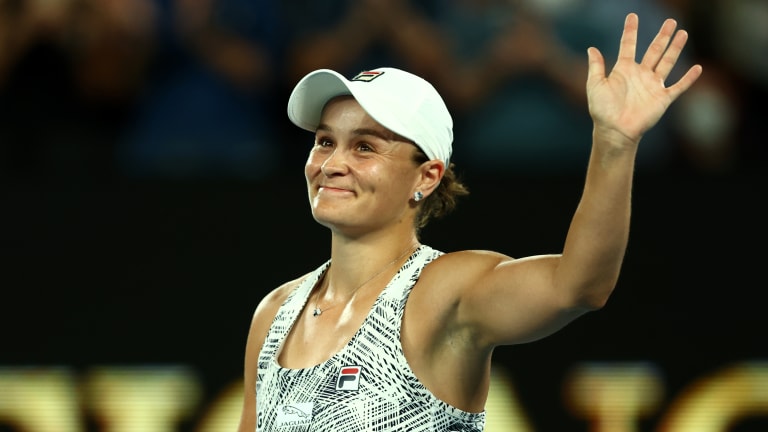Ash Barty Retires
Going out on top: Even in retirement, Ashleigh Barty has always stayed true to herself
By Mar 23, 2022Ash Barty Retires
Ash Barty's Australian Open title was a gift to a nation—and an accomplishment that finally, and truly, set her free
By Mar 24, 2022Ash Barty Retires
25 incredible things Ashleigh Barty achieved in her professional tennis career
By Mar 23, 2022Ash Barty Retires
"Gutted for tennis": Ashleigh Barty's peers react to her sudden retirement
By Mar 23, 2022Ash Barty Retires
BREAKING NEWS: World No. 1 Ash Barty announces retirement from tennis
By Mar 23, 2022Dallas Open
Ben Shelton battles past Denis Shapovalov to reach Dallas final, Taylor Fritz awaits
By Feb 15, 2026WTA Doha, Qatar
Karolina Muchova “nearly forgot winning feeling” before ending title drought in Doha
By Feb 14, 2026Quote of the Day
Victoria Mboko adjusts to favorite status after Doha finals defeat
By Feb 14, 2026The Business of Tennis
Zeynep Sonmez splits with Turkish Airlines after breakthrough season
By Feb 14, 2026Stat of the Day
Alexander Bublik battles to 200th win of career, reaches semifinals in Rotterdam
By Feb 13, 2026Going out on top: Even in retirement, Ashleigh Barty has always stayed true to herself
Let’s hope Barty's legacy—a classic and complete game, a healthy attitude toward work and life, a love of cross-border camaraderie—lives on in the sport.
Published Mar 23, 2022
Advertising
Advertising

World No. 1 Barty announced her retirement on Wednesday.
© Getty Images